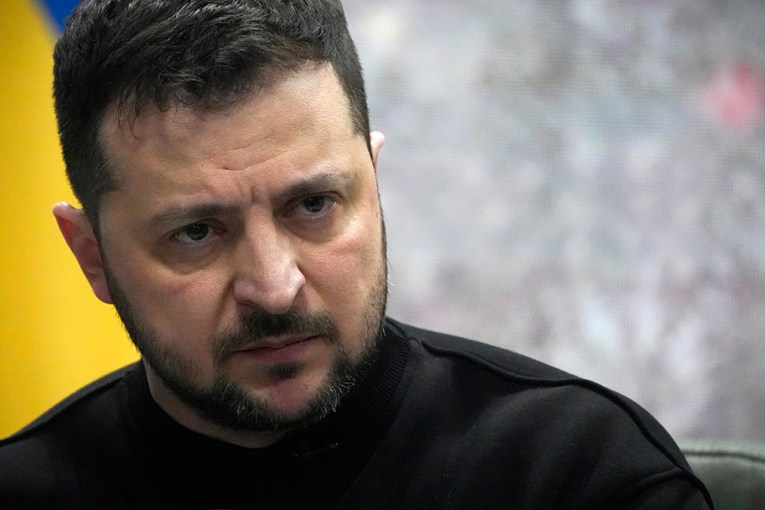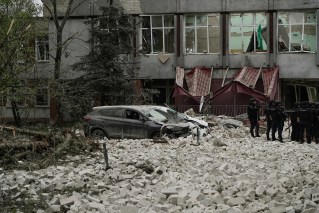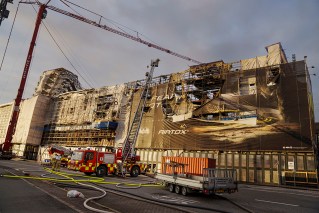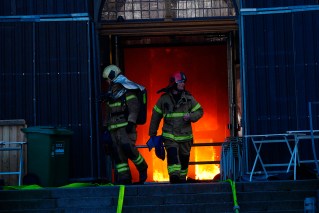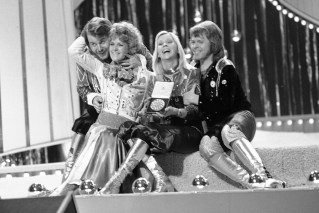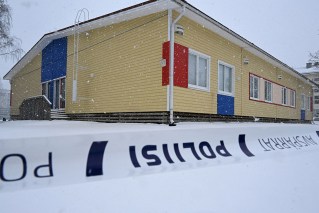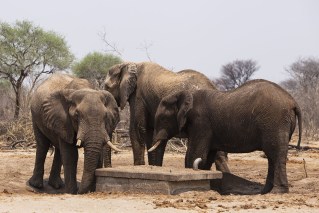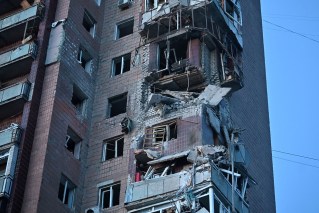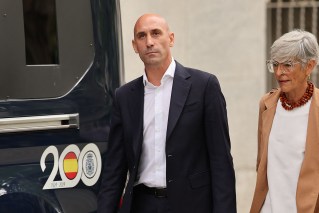Putin marks WWII as Ukraine war grinds on
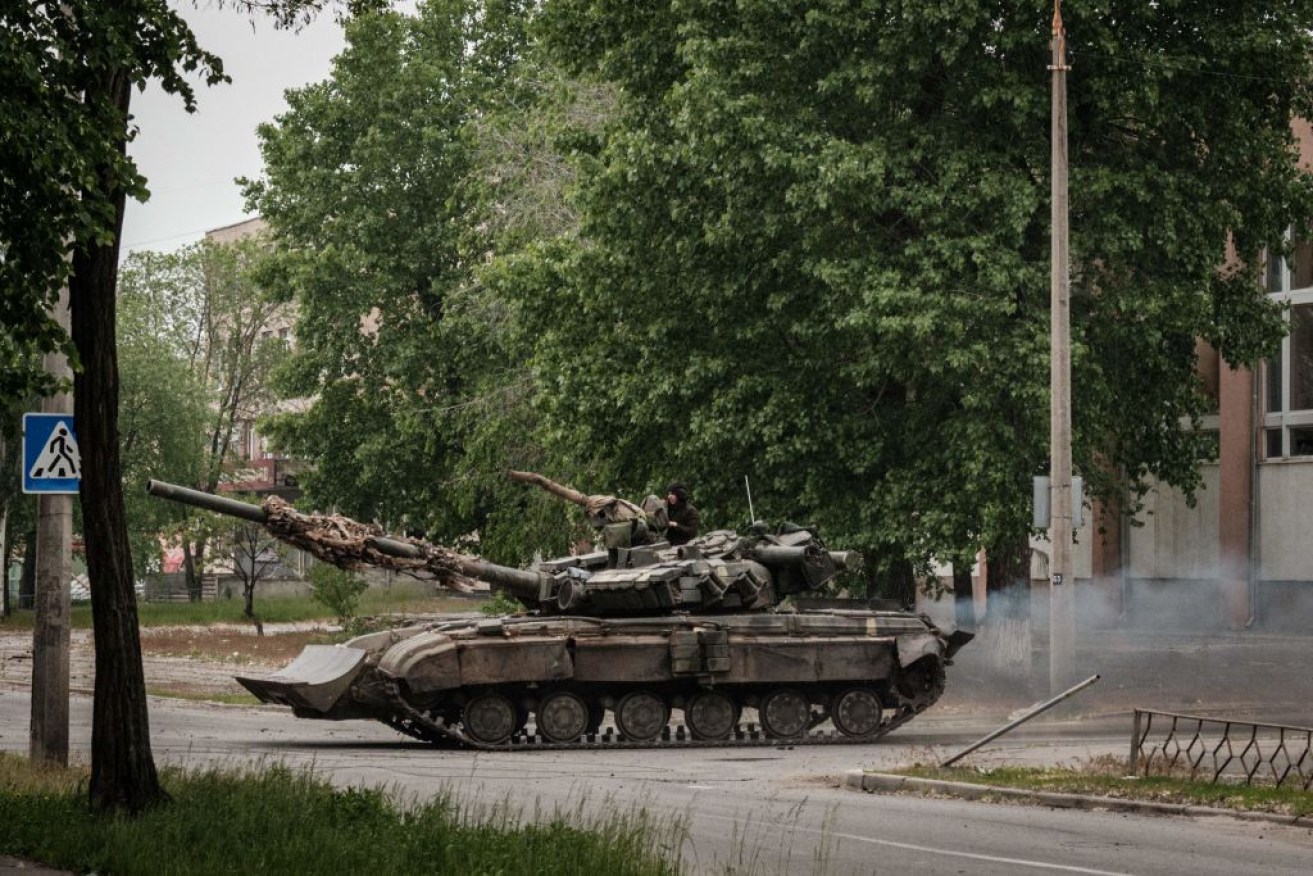
Ukraine is strengthening its defences in the Luhansk region, President Volodymyr Zelensky says. Photo: Getty
Ukrainian and Russian forces remain entrenched in eastern Ukraine going into a day of commemoration in both countries to mark the anniversary of Hitler’s invasion of the Soviet Union in 1941.
Fighting in the months-long war has favoured Russia in recent weeks because of its huge edge in artillery firepower, a fact Ukrainian President Volodymyr Zelensky acknowledged in a late night address on Tuesday.
“Thanks to tactical manoeuvres the Ukrainian army is strengthening its defences in the Luhansk region,” he said.
“That is really the toughest spot. The occupiers are also pressing strongly in the direction of Donetsk.”
Luhansk and Donetsk provinces combined are known as the Donbas, where Russian-backed separatists have been fighting Ukrainian forces since 2014 following Moscow’s annexation of Crimea from Ukraine.
“And just as actively as we are fighting for a positive decision by the European Union on Ukraine’s candidate status, we are also fighting every day for modern weaponry for our country,” President Zelensky said, urging nations supporting his country to speed up arms deliveries.
In a symbolic decision, Ukraine is set to become an official candidate for European Union membership on Thursday, EU diplomats said.
Russia’s failure to make a major breakthrough since invading on February 24 means time is on the side of Ukrainians, according to some military analysts.
“It’s a heavyweight boxing match. In 2 months of fighting, there has not yet been a knockout blow. It will come, as RU forces become more depleted,” retired Lieutenant General Mark Hertling, a former commander of US ground forces in Europe, wrote on Twitter.
June 22 is a significant date in Russia — the Day of Remembrance and Sorrow — marking the day Hitler’s Nazi Germany invaded the Soviet Union in World War II.
It is also commemorated in Ukraine and neighbouring Belarus, both of which were then part of the Soviet Union.
The war there lasted 1418 days from June 22, 1941, with historians estimating about 27 million Soviet soldiers and civilians died.
Russian President Vladimir Putin, who launched what he calls a “special military operation” to “denazify” Ukraine, is due to lay flowers to honour the dead.
To mark the anniversary, the Russian defence ministry on Wednesday released documents dating back to the start of World War II, purporting to show Germany intended to claim the Soviet army was bombing churches and cemeteries to justify its invasion.
“Just as nowadays, in 1941 the Nazis prepared provocations in advance to discredit our state,” Russia’s defence ministry said.
Russian forces and separatists in eastern Ukraine made further advances on Tuesday, pushing towards the city of Lysychansk, the Ukrainian forces’ main bastion in the Donbas.
Russia has made slow progress in the Donbas since April in a conflict that has cost the lives of thousands of soldiers on both sides.
Some of the fighting has spanned the Siverskyi Donets river that curls through the Donbas, with Russian forces mainly on the east bank and Ukrainian forces largely on the west.
Ukrainian troops — and an estimated 500 civilians — are reportedly still holding out at a chemical plant in the east bank city of Sievierodonetsk, despite weeks of heavy bombardment.
Oleskiy Arestovych, an adviser to President Zelensky, said Russian forces had taken the village of Metyolkine and could cut off Lysychansk and Sievierodonetsk from Ukrainian-held territory.
“The threat of a tactical Russian victory is there, but they haven’t done it yet,” he said in a video posted online.
Meanwhile, in retaliation for Western sanctions, Russia has begun pumping reduced volumes of gas to Europe via Ukraine.
European Union states from the Baltic Sea in the north to the Adriatic in the south have outlined measures to cope with a supply crisis after the invasion put energy at the heart of an economic battle between Moscow and the West.
Russia warned Lithuania on Tuesday it would face measures of a “serious negative impact” for blocking some shipments by rail to Moscow’s Baltic Sea exclave of Kaliningrad.
Fellow Baltic nation Estonia expressed solidarity with Lithuania and summoned the Russian ambassador on Tuesday to protest an “extremely serious” violation of its airspace by a Russian helicopter.
